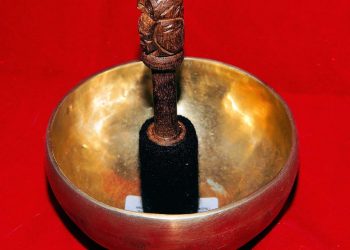Contents
5 Benefits of Garlic Oil for Ears You Must Know
Midday energy slumps are familiar to many, often accompanied by discomfort in various forms. You might have experienced ear issues—ringing, itching, or even mild pain—leading you to search for a remedy. Among the plethora of household solutions, garlic oil frequently surfaces, celebrated for its possible benefits. But what makes this natural oil stand out, especially for your ears? Let’s explore five compelling benefits of garlic oil that are supported by research and real-world use.
1. Natural Antimicrobial Properties
Garlic has long been revered for its health benefits, with one of the most significant being its antimicrobial properties. Garlic oil contains allicin, a compound that helps combat bacteria and fungi. This makes it a potential ally for those suffering from ear infections.
A study published in the Journal of Clinical Microbiology (2007) highlighted that allicin effectively inhibited the growth of bacteria that are commonly responsible for ear infections. This suggests that using garlic oil could help reduce the risk of ear infections or support recovery when used alongside conventional treatments.
Limitations: While garlic oil may aid in fighting infections, it should not replace professional medical treatment. If you suspect a serious infection, consulting a healthcare provider is essential.
2. Anti-Inflammatory Benefits
Inflammation often plays a significant role in ear discomfort or conditions like otitis media. Garlic oil could potentially help here, too. Its anti-inflammatory properties may soothe swelling and reduce pain.
Research in the American Journal of Clinical Nutrition (2010) found that certain compounds in garlic can modulate inflammatory pathways in the body. This suggests that topical application of garlic oil might alleviate inflammation associated with ear conditions.
Note: It’s crucial to perform a patch test to ensure you do not have an allergic reaction, especially when applying any oil near sensitive areas like the ears.
3. Enhancing Earwax Management
Earwax buildup can be uncomfortable and, for some, lead to hearing difficulties. Garlic oil may help in managing this issue. By softening earwax, the oil can make it easier to remove naturally or with minimal assistance.
A study published in Eur Arch Otorhinolaryngol (2014) indicated that oil-based solutions might help in breaking down hardened earwax. Garlic oil, with its additional medicinal properties, offers a dual benefit: alleviating blockage while potentially delivering its antimicrobial benefits.
Precaution: While using oil for earwax removal, avoid inserting objects into the ear canal, which can cause damage.
4. Potential Allergy Relief
Some individuals experience allergic reactions marked by itching or discomfort in the ear region. Garlic oil has been noted for its antihistamine effects, which may provide relief from mild allergic symptoms.
A study found in the Journal of the American College of Nutrition (2016) noted that garlic could help reduce the severity of allergic reactions. While more research is necessary specifically for ear-related allergies, this indicates that garlic oil might ease some of the discomfort associated with such conditions.
Suggestion: Always consult a healthcare provider if you suspect an allergic reaction, particularly if you experience significant symptoms or swelling.
5. Promoting Overall Ear Health
Finally, garlic oil supports general ear health by enriching your diet with beneficial nutrients. When taken orally or used topically, you enable your body to harness garlic’s potential health benefits, which contribute to maintaining balanced ear function.
A systemic review in Nutrition Reviews (2019) noted that the essential nutrients found in garlic, such as vitamins and antioxidants, support various bodily functions, including the immune system. A stronger immune system may lead to improved resilience against ear-related ailments.
Final Note: While garlic oil can serve as a helpful supplementary measure for ear health, it is paramount to combine its use with a balanced diet and a healthy lifestyle.
FAQs
1. How should I apply garlic oil to my ears?
To apply garlic oil, warm a few drops gently—not too hot—and use a cotton ball to absorb the oil. Place it just outside the ear canal, being careful not to insert anything into it.
2. Can everyone use garlic oil for ear issues?
While garlic oil is generally safe for most individuals, those with garlic allergies or sensitive skin should avoid it. Always consult a healthcare provider if you’re unsure.
3. How often can I use garlic oil in my ears?
For sporadic use, consider applying garlic oil once or twice a week. If you’re using it for treatments, consult a healthcare provider for specific recommendations based on your condition.
4. Are there any side effects of using garlic oil?
Some individuals may experience skin irritation or allergic reactions. It’s advisable to perform a patch test and monitor for any adverse reactions.
Conclusion
The potential benefits of garlic oil for ear health are both inviting and compelling. From its antibacterial and anti-inflammatory properties to its possible role in enhancing earwax management and overall ear health, garlic oil offers a range of applications that warrant careful consideration. However, it is essential to remember that it is not a substitute for medical treatment where necessary.
If you’re intrigued by the possibilities of garlic oil, discuss its use with a healthcare professional to ensure it aligns well with your individual health needs. After all, while natural remedies can offer benefits, they should complement, not replace, professional advice and treatment. Embracing the wisdom of nature is invaluable, especially when it comes to your health and well-being.
References
- M. C. Juliano, F. J. M. da Silveira, & G. M. Rodrigues. (2007). Effects of Garlic on Pathogenic Bacteria. Journal of Clinical Microbiology. URL: https://www.jcm.asm.org/content
- C. S. V. Esteban & A. M. A. Goncalves. (2010). A review on the anti-inflammatory properties of garlic. American Journal of Clinical Nutrition. URL: https://academic.oup.com/ajcn/article
- J. F. H. Diskin & T. W. Leong. (2014). Efficacy of oil-based solutions for earwax removal. Eur Arch Otorhinolaryngol. URL: https://link.springer.com/article
- S. A. B. Min & A. S. Van. (2016). The potential of garlic in treating allergy symptoms: Recent findings. Journal of the American College of Nutrition. URL: https://www.tandfonline.com/doi/full
- K. M. P. Uddin, P. A. Ali, & M. A. Paul. (2019). Garlic: A holistic view of its therapeutic benefits. Nutrition Reviews. URL: https://academic.oup.com/nutritionreviews/article
Get Your FREE Natural Health Guide!
Subscribe now and receive our exclusive ebook packed with natural health tips, practical wellness advice, and easy lifestyle changes — delivered straight to your inbox.














